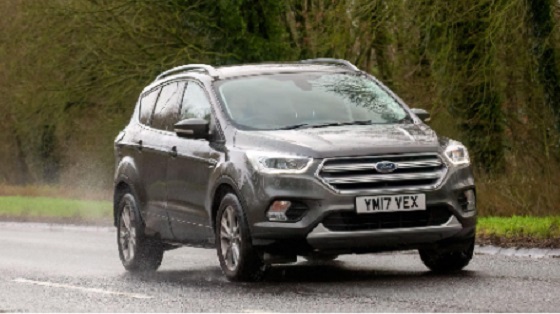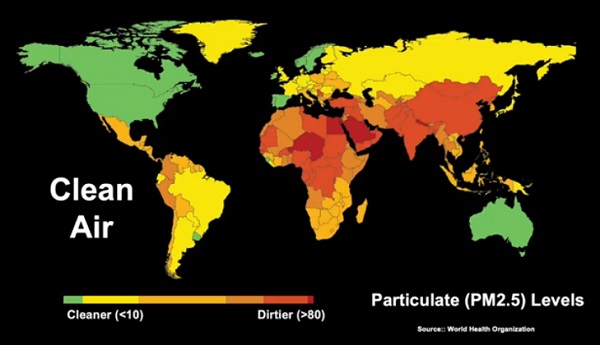Also Interesting
Why Flying Private From Calgary Is Better Than Commercial

This is a guide to flying privately from Calgary, offering everything from cost-saving tips to the perks that you can expect.
Flying privately has always been considered a privilege of the ultra-rich. Until now. While it’s not cheap, it’s much more affordable than it has been before, thanks to a wide range of options arriving on the market and soaring airfares in the commercial sector.
With a host of private jet services on offer at YYC Calgary International Airport, flying in style and comfort has never been more accessible — now, there are fixed-based operators, empty-leg flights, and a host of charter services you can choose from. Whether you’re hopping over to Vancouver for the weekend or flying halfway around the world, there’s a private service for you at YYC Calgary International Airport.
Let’s get into all the reasons why flying private from Calgary is better than commercial travel.

Calgary International Airport Can Get Too Busy
We’re talking about Canada’s fourth-largest airport here, which processed some 18.5 million passengers in 2023 alone. If you’re travelling during the holiday season, then you can expect long queues at the check-in desk, more queues at the security checks, and longer waiting times at the gate. This can be pretty frustrating and stressful, especially if you’re travelling with children or in large groups.
Flying in an aircraft charter from Calgary removes all of these concerns. Arrive at the airport within thirty minutes of departure, be whisked off to the private lounge at your chosen fixed-base operator, enjoy your seamless private check-in, and board your jet. It takes all the stress out of flying while elevating the most luxurious and exciting components.
As soon as your vacation or business trip is over, all you want to do is get home and relax. Flying privately all but guarantees that you arrive on time and enjoy a hassle-free experience as soon as you land. Say goodbye to tiring customs checks or the risk of lost baggage and long delays for connecting flights.
Flying Privately Is Easier (and Cheaper) Than You Think

Flying privately has always been seen as the ultimate flex for the ultra-wealthy — and let’s be honest, private jet ownership still is. But swapping narrow seats and crying kids for serenity at 45,000 ft is more accessible than it used to be. Thanks to some clever cost-saving innovations and rising commercial airfares, private jet travel is starting to look like a surprisingly affordable option for more people.
If you bought your own jet, you’re talking about a minimum purchase price of a few million plus nearly half a million in annual running costs. This puts ownership out of reach for most people, but there are other options. With empty-leg flights (where jets are repositioning and would otherwise fly empty), you can snag luxury flights for prices that won’t break the bank. Think hundreds instead of thousands — assuming you’re a little flexible with your schedule.
For frequent fliers, membership programs or fractional jet ownership are absolute game changers. For a flat fee, you can access planes when you need them, minus the hassle of maintenance or storage costs.
And let’s not forget charter services. Whether it’s a quick hop to a neighbouring city or a transcontinental trip, renting a jet can be cost-effective if you’re travelling with a group — remember, you’re paying for the plane, not the seat. A light jet might set you back $1,300 per hour, but divide that by a group of four travellers for a 6-hour flight, and you’re suddenly rethinking that commercial first-class ticket.
Luxury That Fits Your Schedule
YYC Calgary International Airport has 71 gates and averages almost 200 departures every day. With so much activity, cancellations and long delays are not uncommon. These can occur due to anything from maintenance issues to crew shortages. This year alone, WestJet, which operates out of Calgary, has been plagued with strikes and supply chain issues. Air Canada and WestJet also performed poorly in a list of North American airlines ranked by on-time departures.
Why risk the doom and gloom of commercial air travel at YCC Calgary when you can just fly privately? Fly on your own schedule, guarantee swift take-offs, and arrive at your destination on time. This is even more pertinent for business travellers who can’t risk being late when important meetings and deadlines are at stake. It doesn’t just have to be for work — there are times that require quick actions and getting to places faster to be with family and friends for crucial moments, and flying privately can save you from both the bureaucracy and the wait times.
Fly Private, Fly Better

Flying private from Calgary is less about getting from A to B and more about air travel on your terms. Everything that you’ve ever hated about flying can disappear with the click of your fingers and a call to your jet broker. No matter the occasion — business trips, weekend getaways, intergenerational family vacations — private travel prioritizes the journey’s aesthetics and practicality as much as the destination.
Once you’ve skipped the lines, breezed through customs, and sipped a coffee in your own space at 30,000 feet, you’ll never look at commercial travel the same way again. Go on, make the switch with confidence.
Also Interesting
Top Used Ford SUVs for Families and Adventurers

Finding the perfect SUV that balances comfort, safety, and adventure-ready performance can be a challenge, but Ford’s lineup of used SUVs offers some of the best options available. Whether you need a spacious vehicle for your growing family or an all-terrain companion for weekend getaways, there’s a Ford SUV to match your lifestyle. Let’s explore the top choices that deliver reliability, versatility, and affordability.
What to Look for in a Used Ford SUV?
Before diving into specific models, it’s essential to know what features matter most when shopping for a used Ford SUV. Here are key factors to consider:
● Safety Features – Look for models equipped with Ford Co-Pilot360, which includes automatic emergency braking, blind-spot monitoring, and adaptive cruise control.
● Reliability and Maintenance Costs – Research common issues and ensure the SUV has a solid maintenance history.
● Fuel Efficiency – Choose a model that aligns with your commuting or road trip needs.
● Cargo and Passenger Space – Ensure the SUV has enough room for your family, gear, and pets.
● Off-Road Capability – If adventure is your goal, opt for models with all-wheel drive (AWD) or four-wheel drive (4WD).
If you’re ready to explore available options, check out https://stampedeauto.com/used-ford/ for a selection of quality used Ford SUVs.
1. Ford Escape – The Compact Family Favorite
The Ford Escape is a practical, fuel-efficient SUV perfect for small families and urban explorers. With a history of strong safety ratings and a spacious interior, it strikes a balance between convenience and performance.
Why Choose a Used Ford Escape?
● Fuel Efficiency – Older models with the 1.5L EcoBoost engine offer up to 30 MPG highway.
● User-Friendly Technology – Equipped with Ford SYNC infotainment and smartphone connectivity.
● Versatile Cargo Space – Fold-flat rear seats provide ample room for groceries, sports equipment, or luggage.
● Best Model Years to Buy – 2018-2021 models have modern safety features and improved fuel economy.
2. Ford Edge – The Perfect Mid-Size Balance
For those who want more space without stepping into full-size territory, the Ford Edge is an ideal midsize SUV. It offers a roomy two-row layout, strong engine options, and a smooth ride.
Why Choose a Used Ford Edge?
● Spacious Cabin – More rear legroom than many competitors.
● Powerful Engine Choices – Available 2.0L EcoBoost and 2.7L V6 for extra performance.
● Advanced Safety Features – Includes lane-keeping assist and pre-collision assist in newer models.
● Best Model Years to Buy – 2019-2022 models offer a modern design and strong reliability.
3. Ford Explorer – The Ultimate Family SUV

If you need three rows of seating without sacrificing performance, the Ford Explorer is a top contender. It’s an excellent SUV for large families and those who need extra passenger capacity.
Why Choose a Used Ford Explorer?
● Seating for Up to Seven – Third-row seats offer flexibility for larger families.
● Strong Towing Capacity – Can tow up to 5,000 lbs when properly equipped.
● Powerful Yet Efficient – The 2.3L EcoBoost engine delivers a balance of power and fuel savings.
● Best Model Years to Buy – 2017-2022 models feature advanced driver assistance and improved comfort.
4. Ford Expedition – The Full-Size Powerhouse
For those who need maximum space and towing capability, the Ford Expedition is a standout choice. It’s built for large families, cross-country road trips, and hauling heavy loads.
Why Choose a Used Ford Expedition?
● Room for Eight – A full-size SUV with unmatched passenger space.
● Towing King – Can tow up to 9,300 lbs, ideal for boats and trailers.
● High-Tech Features – SYNC 3 infotainment and multiple USB ports keep everyone connected.
● Best Model Years to Buy – 2018-2022 models have turbocharged efficiency and refined interiors.
5. Ford Bronco Sport – The Adventurer’s Compact Choice
For outdoor enthusiasts, the Ford Bronco Sport is a rugged compact SUV designed for off-road fun while still being a practical daily driver.
Why Choose a Used Ford Bronco Sport?
● Trail-Ready Performance – Standard AWD and off-road modes for different terrains.
● Compact Yet Spacious – Clever storage solutions for camping and gear.
● Turbocharged Engines – 1.5L and 2.0L EcoBoost options for strong performance.
● Best Model Years to Buy – 2021-2023 models provide the latest tech and rugged styling.
Before purchasing a used Ford Bronco Sport, be sure to check for any recalls. For example, certain Ford Bronco Sport and Maverick models have been recalled to fix faulty batteries. To learn more about this, visit Consumer Reports’ coverage on the recall.
Buying Tips: How to Get the Best Deal on a Used Ford SUV
● Certified Pre-Owned (CPO) Options – Ford’s CPO program includes extended warranties and inspections.
● Check Vehicle History Reports – Avoid SUVs with major accidents or unresolved recalls.
● Test Drive and Inspection – Always inspect brakes, transmission, and suspension.
● Compare Prices – Look at local dealerships and online marketplaces for the best deals.
● Negotiate Smartly – Research market value and be prepared to walk away if needed. It also helps to choose a used car dealer with transparent pricing and a solid reputation.
Conclusion
Choosing the right used Ford SUV depends on your specific needs. If you want fuel efficiency and city-friendly size, the Escape is a great choice. For those needing extra space and towing power, the Explorer or Expedition are top contenders. If adventure is a priority, the Bronco Sport
offers unbeatable off-road capability.
No matter which Ford SUV you choose, you’ll get a reliable vehicle that blends comfort, technology, and performance—without the high price tag of a new model. Start your search today and find the perfect used Ford SUV for your family or next adventure.
Also Interesting
Alberta Plans To Open iGaming Market After Ontario’s Success

With plans to regulate its iGaming market, Alberta aims to deliver safer gaming experiences, greater variety for players, and stronger consumer protections.
Alberta is preparing to launch a regulated iGaming market, following Ontario’s successful model. By opening the industry to private operators, the province aims to increase competition, enhance consumer protections, and generate significant revenue. If implemented, this move could position Alberta as a key player in Canada’s evolving online gaming landscape.
The Alberta government has announced plans to open its iGaming market, following in the footsteps of Ontario’s regulated model. The move is expected to create a competitive online gaming environment by allowing private operators to enter the market, rather than keeping online gambling under the sole control of Alberta Gaming, Liquor and Cannabis (AGLC). This shift aligns with the province’s broader strategy to modernize its gaming industry, offering more choices for players while generating additional revenue for public services.
Key stakeholders in this expansion include AGLC, which will oversee regulatory compliance and licensing, and private gaming operators looking to secure a presence in the province. While specific details about licensing requirements and revenue-sharing structures are still being finalized, industry experts anticipate a framework similar to Ontario’s, where operators must meet strict guidelines to ensure consumer protection. Although no official launch date has been set, Alberta officials have indicated that the market could open within 2025, pending regulatory approvals and final policy decisions.
Learning from Ontario’s iGaming Model
Ontario’s transition to a regulated iGaming market in 2022 has been widely regarded as a success, providing a model for other provinces like Alberta to follow. By allowing private operators to enter the market under the oversight of iGaming Ontario (iGO), the province created a competitive and transparent industry that offers players a safer and more diverse gaming experience. The shift also helped curb unregulated offshore gambling by giving players legal, well-regulated alternatives.
Since its launch, the market has seen impressive growth. In its first year, the province generated over $1.4 billion in gaming revenue, making it one of the largest regulated online gaming markets in North America. The competitive landscape has attracted dozens of operators, contributing to job creation and economic development while ensuring a steady stream of tax revenue.
Apart from financial success, regulation has strengthened consumer protection through responsible gaming measures, operator accountability, and stringent licensing requirements. This model has boosted government revenue and set a precedent for how other Canadian provinces, including Alberta, can structure their own regulated iGaming markets.

Potential Challenges and Considerations
While Alberta’s plan to open its iGaming market presents significant opportunities, it also comes with challenges that must be carefully managed. One key hurdle is the regulatory framework, as the province must establish clear licensing requirements, tax structures, and operational guidelines to ensure a smooth transition. Policymakers will need to balance industry growth with responsible gaming practices, learning from Ontario’s experience to avoid potential pitfalls.
Responsible gaming will be another major focus, as increased accessibility to online gambling can raise concerns about addiction and player protection. AGLC will need to implement strict measures, including self-exclusion programs, deposit limits, and public awareness campaigns to promote safe gaming habits. Ensuring that operators comply with these measures will be critical to maintaining consumer trust.
Industry and Player Expectations
This move has sparked interest among gaming operators and industry experts. Many see this as a natural progression following Ontario’s success, with expectations that the province will attract major operators eager to expand into a newly regulated space. However, industry leaders will be watching closely to see how Alberta structures its licensing process and tax rates, which will play a key role in determining the market’s competitiveness.
While Alberta is following Ontario’s lead, its approach may differ in key areas. Ontario operates through iGaming Ontario, a regulatory body that oversees private operators, while Alberta may take a more direct role through AGLC. Additionally, given Alberta’s smaller population compared to Ontario, the province may focus on a more controlled rollout rather than opening the market all at once.
For players, the expansion could mean access to a wider range of online casinos, better game variety, including a larger selection of online slots and table games, and more competitive promotions. With private operators entering the scene, expect an increase in sign-up offers, loyalty programs, and exclusive bonuses designed to attract new customers. If executed effectively, Alberta’s iGaming market could create a more dynamic and player-friendly experience while maintaining strong consumer protections.

What Alberta’s iGaming Future Could Look Like
Alberta’s plan to open its iGaming market marks a significant shift toward a more competitive and regulated online gaming industry. By following Ontario’s successful model, the province aims to create a safer and more dynamic gaming environment while driving economic growth. With private operators expected to enter the market under AGLC’s oversight, players will likely benefit from greater choice and enhanced consumer protections.
If Alberta successfully implements this framework, it could set the stage for other provinces to follow, further shaping Canada’s evolving iGaming landscape. A well-regulated market not only boosts provincial revenue but also strengthens responsible gaming initiatives and keeps players within legal platforms. As the industry awaits further details, Alberta’s next steps will be crucial in determining whether it will become Canada’s next major online gaming hub.
-

 International11 hours ago
International11 hours agoIsrael’s Decapitation Strike on Iran Reverberates Across Global Flashpoints
-

 Business1 day ago
Business1 day agoThe carbon tax’s last stand – and what comes after
-

 Business20 hours ago
Business20 hours agoTrump: ‘Changes are coming’ to aggressive immigration policy after business complaints
-

 International1 day ago
International1 day agoPentagon agency to simulate lockdowns, mass vaccinations, public compliance messaging
-

 illegal immigration20 hours ago
illegal immigration20 hours agoLA protests continue as judge pulls back CA National Guard ahead of ‘No Kings Day’
-

 Business1 day ago
Business1 day ago84% of Swiss hospitals and 60% of hospitalizations are in private facilities, and they face much lower wait times
-

 Bruce Dowbiggin1 day ago
Bruce Dowbiggin1 day agoCanadians Thinks America Owes Them. Trump Has Other Ideas
-

 International2 days ago
International2 days agoElon Musk expresses ‘regret’ over attacks on Trump that ‘went too far’






